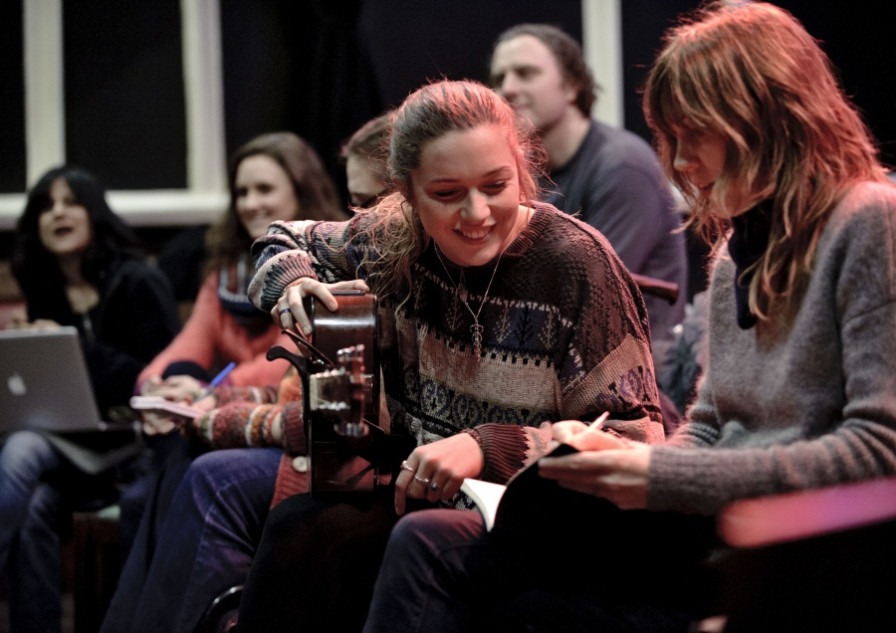Challenging stereotypes and celebrating the unconventional

Kate Lowes, Head of Programmes at Brighter Sound reflects on Here Come the Grrrls, our programme to celebrate, profile and inspire female musicians.
Since the start of the year Brighter Sound has been taking positive action to redress the gender gap that we have seen in our work. Low levels of female participation across our projects with young musicians, emerging artists, and in particular in our residency programmes, mirrors the imbalance across the music industry (particularly outside of the charts).
Digging deeper we came across the headline PRS for Music Foundation statistic that only 14% of its membership is female. On the back of Bjork’s interview with Pitchfork, where she explained that throughout her career she has had to pretend her ideas came from men to get other men to pay attention, a national conversation was sparked with a number of media articles discussing the acceptance of female creativity and the fine lines between self expression and femininity, and the sexualisation and objectifcation of women.
In February, The Sunday Times published a list of the most powerful people in the British music industry, which did not include one single woman – no pop stars and not even the chief operating officer of Sony Music UK, Nicola Tuer. The festival line ups this year sparked further debate as analysis by The Guardian of 12 UK festivals found that men made up 86% of advertised performers. Both Reading and Leeds and Download festivals advertised a staggeringly male-dominated bill, at 94% and 96% respectively, and at dance festival Creamfields, women are almost invisible, making up just 3% of performers.
The upshot of our research left us feeling confident that the issue was more widely spread than just our projects and so, with support from our strategic partners, Youth Music, we launched Here Come the Grrrls. Throughout the programme we have been showcasing and celebrating some incredibly talented female musicians. We’re running courses, projects and residencies that support young and emerging female artists to be creative, experiment, take risks and collaborate in a safe and supportive environment.
Following in the footsteps of Beth Orton, Jennifer Batten and Natalie McCool, our most recent masterclass was lead by the Polaris Music Prize winner Tanya Tagaq who introduced us to the ancient art of Inuit throat singing, a tradition that is tens of thousands of years old. Tanya explained how the art was rooted and developed in a matriarchal society and told a group of young female musicians about the way her culture and heritage inspired her music. She told us about her journey as a woman working in the music industry and inspired the group with pearls of wisdom around confidence, and the connections between femininity and nature.
Following the masterclass Tanya performed non-stop for an hour taking us on a journey through the contradictions of existence – life from conception through birth to death and beyond, with her voice taking on many shapes as she evoked the natural world.
“The lowest common denominator in humanity is the breath,” she says. “Being able to communicate with every single person at a concert by the mere fact that we’re all breathing is so celebratory to me. I can feel all the energy from all the people in the audience. It comes into my stomach and then out my mouth. I’m feeding off them to make what I’m making.”
Her fusion of song, Inuit throat singing, electronics and free improvisation lead to an empowering performance of strength and femininity delivered, to western ears, in an unconventional way.
But that is the purpose of this project: to challenge some of the stereotypes and assumptions that surround female performers, and to celebrate the unconventional – the freedom of female creativity and self expression.
Join the conversation: #hctg
Watch Tanya's masterclass and performance here:

